CL&P Exclusive – Talking North Korea with Jenny Town (Part 2)
Part 2 – The Role of China
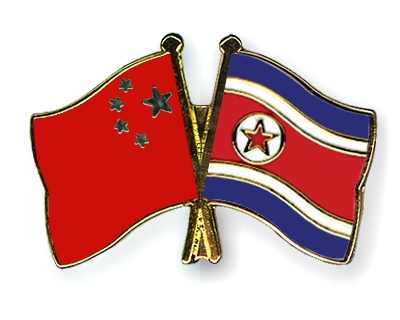 Yesterday, China Law & Policy published Part 1 of its exclusive interview with Jenny Town, Assistant Director of the U.S.-Korea Institute and noted expert on North Korea. While Part 1 of the interview focused on North Korea’s military build-up and the U.S.’ prior policy toward North Korea, in Part 2, Ms. Town discusses Secretary Tillerson’s announcement that no options are off the table, the precarious future of U.S-North Korea relations, and what role can China play in all of this. Is it really that “China has done little to help” as President Trump tweeted a few weeks ago?
Yesterday, China Law & Policy published Part 1 of its exclusive interview with Jenny Town, Assistant Director of the U.S.-Korea Institute and noted expert on North Korea. While Part 1 of the interview focused on North Korea’s military build-up and the U.S.’ prior policy toward North Korea, in Part 2, Ms. Town discusses Secretary Tillerson’s announcement that no options are off the table, the precarious future of U.S-North Korea relations, and what role can China play in all of this. Is it really that “China has done little to help” as President Trump tweeted a few weeks ago?
Read the transcript below for Part 2 of this two-part interview where Ms. Town explains the role of China on the Korean peninsula. Or click on the media player below to listen to the interview (total time – 20:38)
For Part 1 of the series, please click here.
***************************************************************************
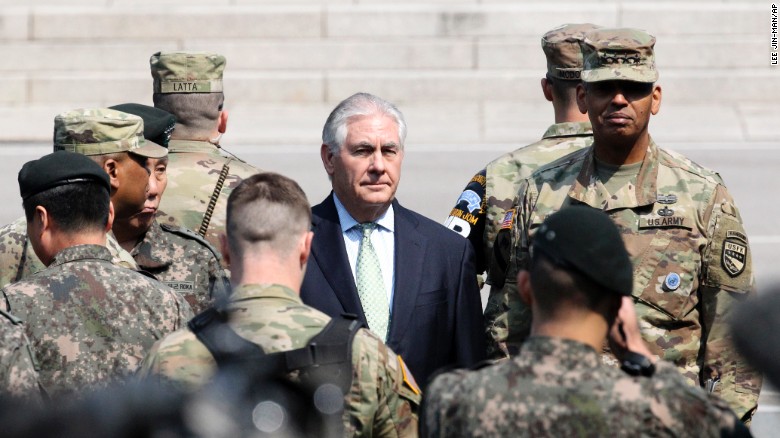
Secretary Tillerson at the DMZ, March 2017 (Photo courtesy of CNN)
CL&P: I guess in that regard, I mean when Tillerson was over there this past month, he stated that he was going to leave all options on the table. What exactly do you think he meant by that, and is this harsher stance? I mean it sounds like it’s a harsher stance than strategic patience. Is it good or bad for peace on the Korean peninsula?
JT: I think it’s a little bit out of context. I think that the reality is Tillerson is not a seasoned diplomat, and so when he says certain things, he says certain things in ways that a seasoned diplomat wouldn’t. The reality is right now the [U.S.] government is going through a policy review. And as part of the policy review of course, they’re reviewing all options, including military options, including negotiations, and so they haven’t necessarily come out with their policy yet. So part of what he was saying is that yes, all options are still on the table, but that doesn’t necessarily mean that that’s exactly what we’re going to be doing in the future.

President Xi Jinping (Photo courtesy of Time)
The [U.S.] government is expected to be done with their policy review in the next couple of weeks, especially before the visit by Xi Jinping to be able to have some level of strategic discussion with Xi Jinping. But, you know, it isn’t helpful for him to have said it either, again without those qualifiers, because it does come across more aggressive and more belligerent at a time when tensions are already very high. This kind of talk is very dangerous especially if that isn’t the direction which we end up going because it already put the thought out there, and it’s already sort of antagonizing the situation more than it needs to be.
CL&P: I think that’s true, because I think of lot of the press already have interpreted that statement as also equating it with preemptive strike. How serious of a possibility do you think right now in diplomatic circles down in D.C. people are talking about preemptive strike against North Korea?
JT: I would say people are talking about it, and they’re talking about it a lot. But most of the discussion about that’s happening right now is why it’s a really, really bad idea because all of the things that could go wrong in the process. Here’s the problem. It’s not even preemptive strikes. It’s not like we’re watching them load up an ICBM that we know is coming to the U.S. which would give us the right to defend ourselves from an attack. That’s what preemptive means.
What people are talking about now is more preventive strikes or surgical strikes. So basically preventing them from having the technology by trying to disrupt their systems; preventive strikes on say missile bases or missile arsenals, things like that. But, I think there’s a huge miscalculation if people think that North Korea wouldn’t retaliate. If the U.S. were to do something, North Korea is almost guaranteed to have some kind of response. The response might not even be directly on the U.S., but again our allies in the region. It makes it very dangerous. It’s a very dangerous proposition, one that could easily escalate into war.
CL&P: You had mentioned the new Trump administration figuring out a more precise North Korea policy before Xi Jinping comes to visit Trump, and I think that’s interesting. Because in President Trump’s Tweet a couple weeks ago about the North Korean situation, in addition to saying that they were behaving badly, he also brought up China, and stating that China has done little to help. I guess just to start us off if you can explain a little bit more what exactly is China’s current relationship with North Korea.

Better times. Prior N.Korea lead Kim Jong-il meeting with prior Chinese President Hu Jintao (Photo courtesy of the Wall Street Journal)
JT: China’s current relationship with North Korea is not very good either, especially compared to past years. Under Kim Jong-il China had a good understanding of North Korea and had a relationship with Kim Jong-il and could signal to him when he’s gone too far. They had a personal relationship with him and knew how he would react to certain things. Since Kin Jong-un has come to power, Kim Jong-un does not have a relationship with Xi Jinping. He hasn’t been to Beijing. They don’t know what to expect from him. They don’t know him. Everything that anyone is doing that’s trying to send signals to North Korea, we don’t exactly know how he will react.
We knew how Kim Jong-il would react because Kim Jong-il had been there for 20 years. He had been apprenticed under Kim Il-sung for 16 years before that. Kim Jong-un only came to the scene a year before his father died. We never got to know him as the successor before he took over, and now that he’s in power there’s a lot of times where people say he’s unpredictable. Well, of course he’s unpredictable to us because we don’t know him and we don’t have a relationship with him. And we don’t know how he’s going to react. Too many people assume that he will react like Kim Jung-il did, but he’s proven he’s not his father.
The question is now when are people finally going to take the time to accept that notion – he’s not his father – and try and build a relationship with him. To try and get to know him and better understand how he’s thinking and how he’s going to react to things.
Kim Jong-un’s half brother, murdered in Malaysia. (Photo courtesy of the South China Morning Post)
CL&P: I mean I guess also in that regards with Kin Jong-un taking over leadership and the relationship with China, it’s been mentioned a number of times that he hasn’t visited Beijing. Also, my understanding, correct me if I’m wrong, is that the execution of his uncle. His uncle was close to Beijing, and then also the half brother was protected by Beijing. Are any of these things being done to sever even further the relationship with Beijing or to prove something to Beijing, or do we just not know?
JT: It clearly has had a damaging effect on an already frustrated Beijing. I think that there’s a lot of problems with the way that people think about China’s influence on North Korea, and I think they really over estimate that influence. Again, under Kim Jong-il, I think it might have had a little bit more credence just because, again, they had a legacy of working together. With Kim Jong-un, it’s a much different relationship. It’s one of those things where Beijing does not want North Korea to have nuclear weapons either. But it’s hard to imagine a scenario where they [China] have this secret formula where if they just did certain things, North Korea would fall in line and that they just choose not to do it.
China’s Wu Dawei (center) visits North Korea
I think this is how a lot of Americans think about China policy towards North Korea. In the meantime, I think China has done a lot to try and address the issue, but has limitations on the influence that they have. They say this to us all the time. It’s not like China has a China-North Korea joint army like the U.S. and South Korea does. They don’t have a presence in North Korea. They can certainly send messages and send signals, but even the fact that back in 2015. Was that it? No, in 2016, even when Wu Dawei had gone to Pyongyang to talk to the North Koreans about settling things down. The fact that they announced that they were going to do another SLV launch on the day that he landed, I think shows a lot about how Kim Jong-un thinks about Beijing right now.
And I think a lot of it is the relationship has been damaged as Kim Jong-un is trying to show he can’t be pushed around. I think some of this antagonism with China is maybe also somewhat triggered by all this U.S. talk of ‘if we just push China enough, China will take care of this problem.’ I think it puts the Chinese in a very awkward position, but the Chinese always come back to us and say ‘hey look we’re doing what we can, but the U.S. should be doing more, too.’ And the doing more part has to do with direct bi-lateral diplomacy as well. So without that factor, all we’re doing is kind of skirting around the issue and just putting more pressure on an already boiling pot.
The border between China and North Korea
CL&P: I guess in that regards, with the situation today in the relationship between China and North Korea now, then how instrumental is China in easing the tensions on the Korean peninsula?
JT: I think China definitely plays a big role, but it doesn’t play the only role. It’s not something where if we just use China enough that China can scold North Korea and North Korea’s going to come to the table. The other problem too is that even if China – and here’s always sort of these clash of tensions – is that China’s national interest is to prevent instability in the region because instability is good for no one. The U.S., part of strategic patience, they’re kind of hoping that North Korea will collapse and that if we put enough pressure on the situation, we can get the regime to change which is sort of the path of most resistance and the most danger.
I think there is a certain degree to where China also recognizes that the more pressure it puts by cutting off,. . .Implementing sanctions is one thing, but a lot of people think ‘well if China just cuts of North Korea and all trade and all oil and all goods, that North Korea again will just bend over, and will come running back and beg for forgiveness kind of thing,’ but I think the problem is that that scenario is very unlikely. Even if China does that, North Korea’s more likely to be more belligerent. Belligerent could be belligerent towards China as well, so you never know. We talk about this a lot these days: be careful what you wish for. Getting China to cut off North Korea could go one way in a positive way. It could go really bad as well.
Xi to meet Trump next week at his Florida resort, Mar-a-lago
CL&P: When Xi Jinping meets with President Trump, what do you think he’ll be asking the U.S. to do with North Korea? What do you think his request will be?
JT: I’m almost positive he’s going to tell the U.S. that negotiations have to be part of any new policy. For instance if you look at the U.N. Security Council resolutions, when the U.S. talks about the U.N. SPR 2270 or 1718 or 2048, all the different resolutions now, they always talk about the sanctions resolution. In the last round, in the 2270 resolutions for instance, in those negotiations, I think people came away thinking ‘wow China really agreed to some tougher measures.’ We’re kind of impressed that China agreed to these tougher measures definitely sending signals to Pyongyang that they were unhappy with Pyongyang’s behavior.
When the Chinese talk about 2270, they talk about resolution 2270, not the 2270 sanctions. The big difference is that in that resolution, there’s also a mandate for negotiations. So when the Chinese talk about these things, and in response to pressure or criticism that they’re not doing enough, they always come back with ‘but you’re not fulfilling your end of the portion either.’
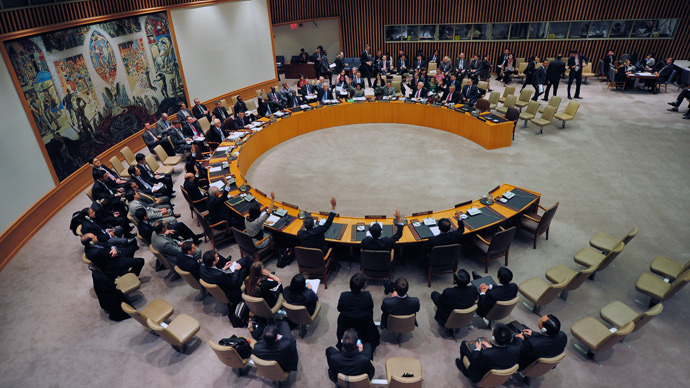
U.N. Security Council
CL&P: So basically the 2270 called for not just sanctions, but also going back to the table, and that hasn’t happened?
JT: Right.
CL&P: Okay. So what they’re looking for, Beijing, is reverting back to the six party talks?
JT: Not necessarily. But at least getting some level of negotiations going and some level of engagement going because we’re not going to break this cycle of provocation and response until there’s some kind of diplomatic offer.
CL&P: In terms of getting negotiations going again, do you think that’s even possible given the current regime in North Korea and what’s been happening and also the language that’s been being used by the Trump administration, even if Tillerson misspoke. Do you see that given the tensions between the U.S. and North Korea right now, negotiations are a possibility?

Trying to get all parties to the negotiation table
JT: I think if it was up to the North Koreans, yes negotiations are possible. If it’s up to the Trump administration, I have increasing skepticism that we’re going to get anywhere. This is going back to your question of when Tillerson said strategic patience is over, we all look at the things that he talks about after that. Those are really just tenets of strategic patience. So again without negotiation you’re still just doubling down on the same tactic and hoping for a different result. Even if you’re making them harder-edged, it’s still not a new tactic. Again, if it’s been ineffective now for eight years, what makes you think just pushing a little harder is going to help?
CL&P: I know the new administration’s still getting together their policy team. Do they have anybody in the administration that specializes in North Korea to advise them on some of these issues?
JT: Well, in the State Department, there is a U.S. representative for North Korea policy, Joe Yun, Ambassador Yun. But it’s unclear to us who else is working on these issues at this moment because there still hasn’t been an effort to staff up the State Department or senior leadership in the DOD [Department of Defense]. There’s still a lot of questions even here in D.C. that we just don’t have answers for.

North Korean soldiers. Looking for the six party talks? (Photo courtesy of Int’l Crisis Group)
CL&P: If you had the opportunity to advise the current administration, assuming that it’s goal is to avoid war on the Korean peninsula, what would your advice be?
JT: My advice has been pretty consistent. The fact that yes, you can double down on sanctions and bolster defenses, but without the diplomatic track, the situation is going to get worse. The longer it takes to try and actually try to have talks about talks and see what’s even possible any more, the higher the stakes are going to be in the process and the more leverage that North Korea builds over time as it continues to grow its strategic arsenal. So if we really want to make a difference, then create a different relationship and one that serves our national interest, they’re going to need to have some kind of diplomatic track and need to be able to shoulder the criticism that’s going to come along with that from all the skeptics.
CL&P: The criticisms within the United States?
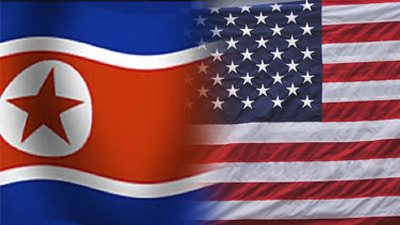 JT: Yes. There’s always the arguments of ‘well we’ve tried negotiations before, but they didn’t work,’ or ‘North Korea always cheats.’ Well just because we tried it before, does that mean … Diplomacy is not a one-off, and it’s not a linear path, and national security is not a linear path. If you don’t have at least talks about talks to figure out what’s even possible within the negotiating framework, you’re losing the battle. You’re limiting yourself as to what you can do. But these days there’s so much criticism because we’ve gotten so far off track. Whichever president decides that the situation’s gotten dire enough where we need to suck it up whether we like it or not and try some level of diplomacy, it’s going to come with criticism, and they need to be able to deal with that.
JT: Yes. There’s always the arguments of ‘well we’ve tried negotiations before, but they didn’t work,’ or ‘North Korea always cheats.’ Well just because we tried it before, does that mean … Diplomacy is not a one-off, and it’s not a linear path, and national security is not a linear path. If you don’t have at least talks about talks to figure out what’s even possible within the negotiating framework, you’re losing the battle. You’re limiting yourself as to what you can do. But these days there’s so much criticism because we’ve gotten so far off track. Whichever president decides that the situation’s gotten dire enough where we need to suck it up whether we like it or not and try some level of diplomacy, it’s going to come with criticism, and they need to be able to deal with that.
CL&P: I guess if you’re leaving all options on the table, why would you take diplomacy off the table?
JT: Right.
CL&P: We talked about China, and we talked about the United States. I guess Japan and South Korea, I mean I would assume their interest is for more negotiations, or …/
JT: Not necessarily. You have a pretty hard-line government in Japan these days. They want to build up more missile defenses. They’ve even talked about missile interception and they sort of take the lead from the U.S. as far as that goes. With South Korea, it’s different. South Korea, it’s hard to tell what they will do next because it really will be dependent on who the next president is. Their policy could change drastically towards North Korea. It could be at odds with what the U.S. decides to do as well. Then that is going to really put pressure on the U.S.-Korea alliance.

Jenny Town, Assistant Director of the US-Korea Institute
CL&P: Well, this is a very interesting interview. It doesn’t sound like there’s any solution any time soon. I want to thank you again for spending time talking to China Law & Policy. Hopefully, people will listen to this interview, and conflict can be avoided.
JT: I hope so, too. Thanks for having me.
CL&P: Thank you.
JT: Sure
*********************************************************************************
For Part 1 of this two-part interview, click here.
 On Facebook
On Facebook By Email
By Email 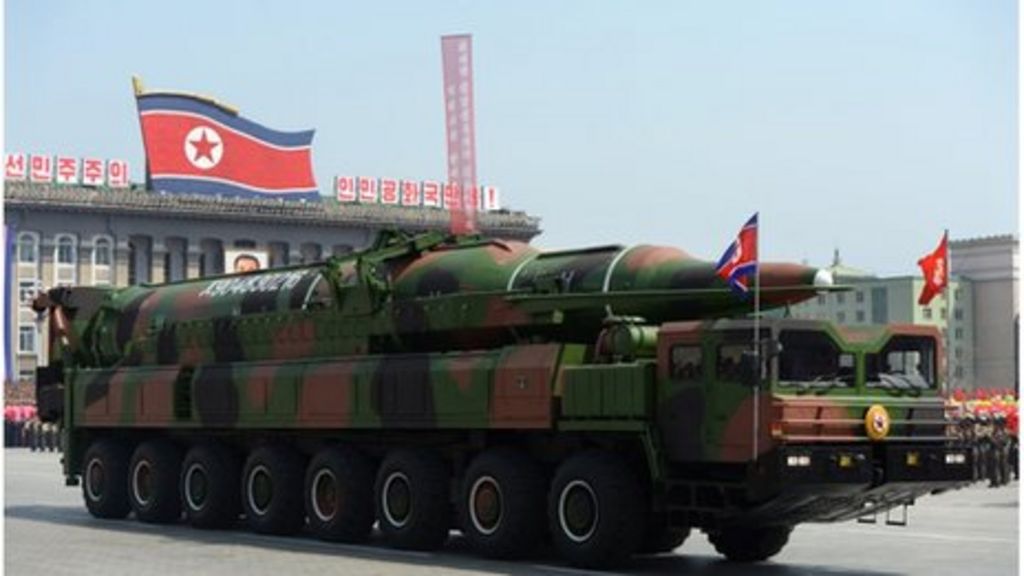




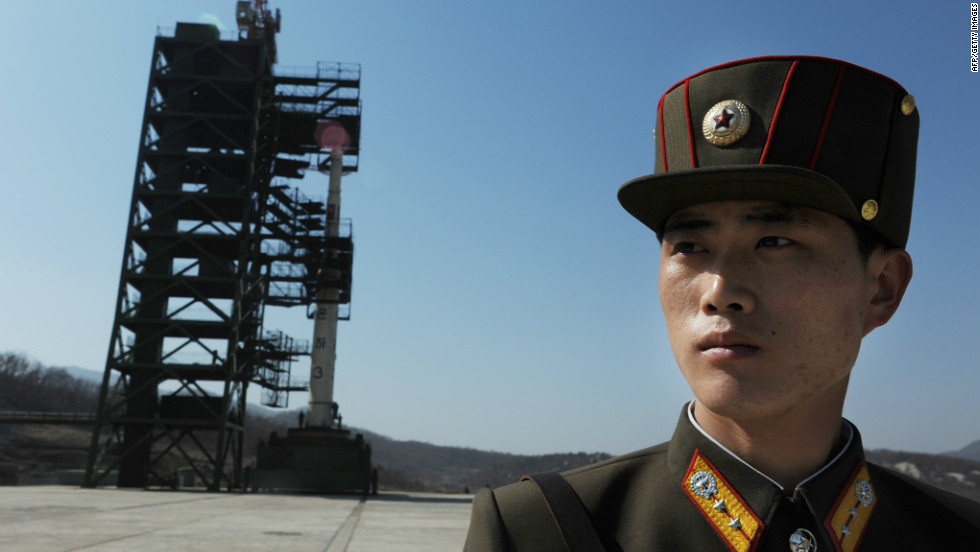 CL&P: In terms of all this development, I mean I guess this goes back to the first question, and your answer to the first question about not perceiving North Korea as this shut in country, where do they get the ability to develop this technology? How do they have the knowledge to develop this technology for nuclear weapons?
CL&P: In terms of all this development, I mean I guess this goes back to the first question, and your answer to the first question about not perceiving North Korea as this shut in country, where do they get the ability to develop this technology? How do they have the knowledge to develop this technology for nuclear weapons?